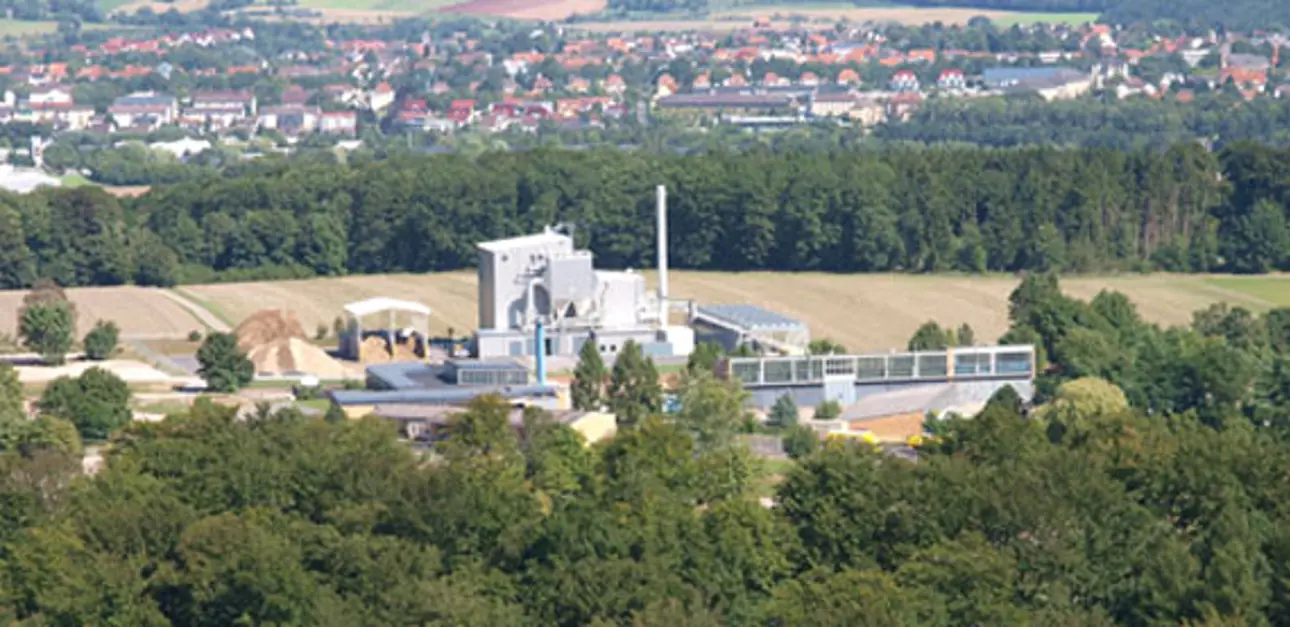Valmet offers a greener side to power generation

Renewable energy accounts for ever increasing share of energy supply in Germany. Power plant in Bad Arolsen powers the community with local renewable biomass fuels.
Today, there are new, exciting ways for the fossil fuel-dominated power industry to reduce and cut its dependence on non-renewable energy. Heat and electricity can be generated sustainably, yet profitably.
“Our mission is to create practical, realistic and economically sound ways to generate power using bio-based raw materials and thereby complement the usage of fossil fuels,” says Jyrki Holmala, President of Valmet’s Pulp and Energy business line. “The world’s largest biomass boilers come from Valmet, but we are also Europe’s leading provider of medium and small-scale power and heating plants using biomass and fuels derived from recycled waste.”
| Valmet offers boiler technology, fuel handling systems, flue gas cleaning systems as well as global services. According to Jyrki Holmala, President of Valmet's Pulp and Energy business line, the company can deliver bioenergy systems in any size. |  |
In the past, it has been difficult to balance environmental compliance with economic performance. Valmet’s solutions enable power producers to reduce environmental impact, while fulfilling their mission to produce energy competitively.
With advanced energy management controls, plants can reduce fuel consumption and at the same time increase capacity to become more competitive. Environmental monitoring and reporting systems enable these plants to take care of their responsibilities.
40 million tonnes of greenhouse gases avoided annually
“During the past ten years, we have delivered more than 13 GWth of boiler capacity that utilizes renewable fuels and reduces emissions associated with fossil-fuel-fired boilers,” continues Holmala. “In practice, this CO2 neutral energy production has helped to avoid 40 million tonnes of greenhouse gas emissions annually, corresponding to emissions from over 24 million cars.”
This is possible thanks to Valmet’s fluidized bed boiler technology and its ability to convert various renewable raw materials, such as forest residuals, reed canary grass and municipal waste, into energy. Such flexibility allows multiple fuel options and makes it possible for power producers to gradually move from fossil fuels to renewable energy production.
New conversion technologies are here
“Bio-based fuel sources can be found in all corners of the world, and we aim to create technology that can efficiently and sustainably utilize these local resources globally. To fully cover all possibilities within the biomass fuel range, we are constantly looking for ways to expand our technological base and geographical coverage,” Holmala explains.
In most countries, the current infrastructure to generate power and heat is based on coal and heavy fuel oil. Valmet has created solutions to make these existing power and heating plants greener by using different kinds of biomass as fuel.
For example, the award-winning gasification power plant in Lahti, Finland, uses solid recycled fuel to efficiently generate electricity and district heat. Valmet supplied the main equipment, including a mill-wide automation system from Metso. This pioneering solution reduces CO2 emissions by an estimated 410,000 tonnes a year compared with the same amount of electricity and heat generated using coal.
Another example is the gasification plant in Vaasa, Finland, where biomass is introduced as a second raw material source at a conventional coal-fired plant. The plant is the biggest of its kind in the world. Its 140 MW capacity is enough to heat about 10,000 single-family houses even during the coldest winter spells.
It is also possible to produce bio-oil from wood-based biomass using fast pyrolysis technology. The bio-oil produced can be used to substitute heavy fuel oil, for example, in district heat plants.
Bioenergy holds the trump card
When it comes to sustainable power production, Holmala believes that the sector offers unlimited potential to help the world shift to sustainable power production with lower CO2 emissions.
“We started with wood, and we see even more options in the future. There are several agricultural waste fuels, such as by-products from sugarcane and rice production, that can be further utilized to meet the demand for global power production,” he says.
Holmala thinks that Valmet holds the trump card in the attractive bioenergy sector: “Bioenergy production is not dependent on the wind or sun, and can offer stable energy streams for both local and global operations. It also creates jobs and new business opportunities for local operators as well as for fuel providers. All forms of sustainable energy are important. In the end, it comes down to providing practical options for environmentally friendly power production and caring for the future.”